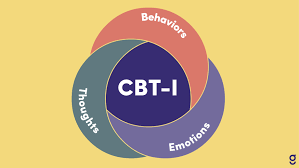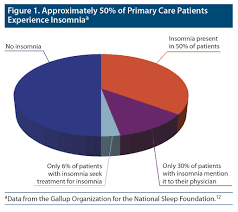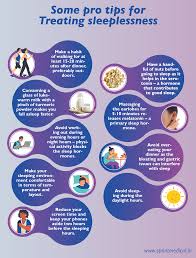CBTI, or Cognitive Behavioral Therapy for Insomnia, is a highly effective treatment for individuals struggling with sleep issues. Insomnia is a common sleep disorder that can have a significant impact on one’s quality of life, leading to daytime fatigue, irritability, and difficulty concentrating.
CBTI focuses on changing behaviors and thoughts that contribute to insomnia. This therapy aims to help individuals develop healthy sleep habits and address the underlying causes of their sleep difficulties. By targeting both the behavioral and cognitive aspects of insomnia, CBTI offers a comprehensive approach to improving sleep quality.
One key component of CBTI is stimulus control therapy, which involves creating a strong association between the bed and sleep. This may include going to bed only when sleepy, using the bed only for sleep and intimacy, and getting out of bed if unable to fall asleep within a certain time frame.
Sleep restriction therapy is another important aspect of CBTI. This technique involves limiting the amount of time spent in bed to match the individual’s actual sleep duration. Over time, this helps consolidate sleep and improve overall sleep efficiency.
In addition to these behavioral strategies, CBTI also addresses cognitive factors that may contribute to insomnia. By challenging negative thoughts about sleep and promoting relaxation techniques, individuals can learn to manage stress and anxiety that may be interfering with their ability to fall asleep.
Research has shown that CBTI is more effective in the long term compared to medication alone for treating chronic insomnia. It empowers individuals to take an active role in improving their sleep health and provides them with valuable tools they can continue to use beyond the therapy sessions.
If you are struggling with insomnia and looking for a sustainable solution that addresses the root causes of your sleep difficulties, consider exploring Cognitive Behavioral Therapy for Insomnia. Consult with a qualified healthcare provider or therapist to determine if CBTI is right for you.
Understanding CBTI: Key Questions and Answers About Cognitive Behavioral Therapy for Insomnia
- What is CBTI and how does it work?
- Is CBTI an effective treatment for insomnia?
- What are the key components of Cognitive Behavioral Therapy for Insomnia?
- How long does it take to see results from CBTI?
- Are there any potential side effects or drawbacks of CBTI?
What is CBTI and how does it work?
Cognitive Behavioral Therapy for Insomnia (CBTI) is a structured and evidence-based treatment approach designed to help individuals improve their sleep quality by addressing both behavioral and cognitive factors that contribute to insomnia. CBTI works by targeting unhealthy sleep habits and negative thought patterns that can disrupt the sleep-wake cycle. Through techniques such as stimulus control therapy, sleep restriction therapy, cognitive restructuring, and relaxation training, CBTI aims to retrain the mind and body for better sleep. By promoting healthy sleep behaviors and addressing underlying issues like stress and anxiety, CBTI empowers individuals to take control of their sleep health and achieve long-lasting improvements in their ability to fall asleep and stay asleep.
Is CBTI an effective treatment for insomnia?
Cognitive Behavioral Therapy for Insomnia (CBTI) has been widely recognized as an effective treatment for individuals struggling with insomnia. Numerous studies have demonstrated the efficacy of CBTI in improving sleep quality and reducing symptoms of insomnia. By addressing both the behavioral and cognitive factors that contribute to sleep difficulties, CBTI offers a comprehensive approach to treating insomnia. Many individuals who have undergone CBTI have reported significant improvements in their sleep patterns, leading to better overall well-being and quality of life. If you are seeking a long-term solution for your insomnia, CBTI may be a valuable option to consider with the guidance of a qualified healthcare provider or therapist.
What are the key components of Cognitive Behavioral Therapy for Insomnia?
Cognitive Behavioral Therapy for Insomnia (CBTI) incorporates key components aimed at addressing both behavioral and cognitive factors contributing to sleep difficulties. The primary components of CBTI include stimulus control therapy, which focuses on establishing a strong association between the bed and sleep by incorporating specific bedtime routines and limiting activities in bed to promote better sleep hygiene. Sleep restriction therapy is another vital component that involves restricting time spent in bed to match actual sleep duration, helping improve sleep efficiency over time. Additionally, CBTI addresses cognitive factors through techniques such as challenging negative thoughts about sleep and promoting relaxation strategies to manage stress and anxiety that may interfere with falling asleep. These integrated components of CBTI work synergistically to help individuals develop healthier sleep habits and overcome insomnia.
How long does it take to see results from CBTI?
Individual experiences with Cognitive Behavioral Therapy for Insomnia (CBTI) may vary, but many people start to see improvements in their sleep patterns within a few weeks of starting treatment. Typically, it is recommended to complete a full course of CBTI, which can last anywhere from 4 to 8 weeks, to achieve lasting results. Consistency and commitment to the therapy techniques are key factors in how quickly one may see improvements in sleep quality. It’s important to work closely with a qualified healthcare provider or therapist throughout the process to monitor progress and make any necessary adjustments to the treatment plan.
Are there any potential side effects or drawbacks of CBTI?
While Cognitive Behavioral Therapy for Insomnia (CBTI) is generally considered safe and effective, there may be some potential side effects or drawbacks to consider. Some individuals may initially experience an increase in sleep disturbances or heightened awareness of their sleep patterns as they adapt to the therapy. Additionally, implementing behavioral changes and challenging cognitive patterns can be challenging and may require dedication and consistency. It’s important to work closely with a qualified healthcare provider or therapist to monitor progress, address any concerns, and make adjustments as needed throughout the CBTI process. Overall, the benefits of CBTI in improving sleep quality and addressing insomnia often outweigh the potential drawbacks when approached with commitment and guidance.




